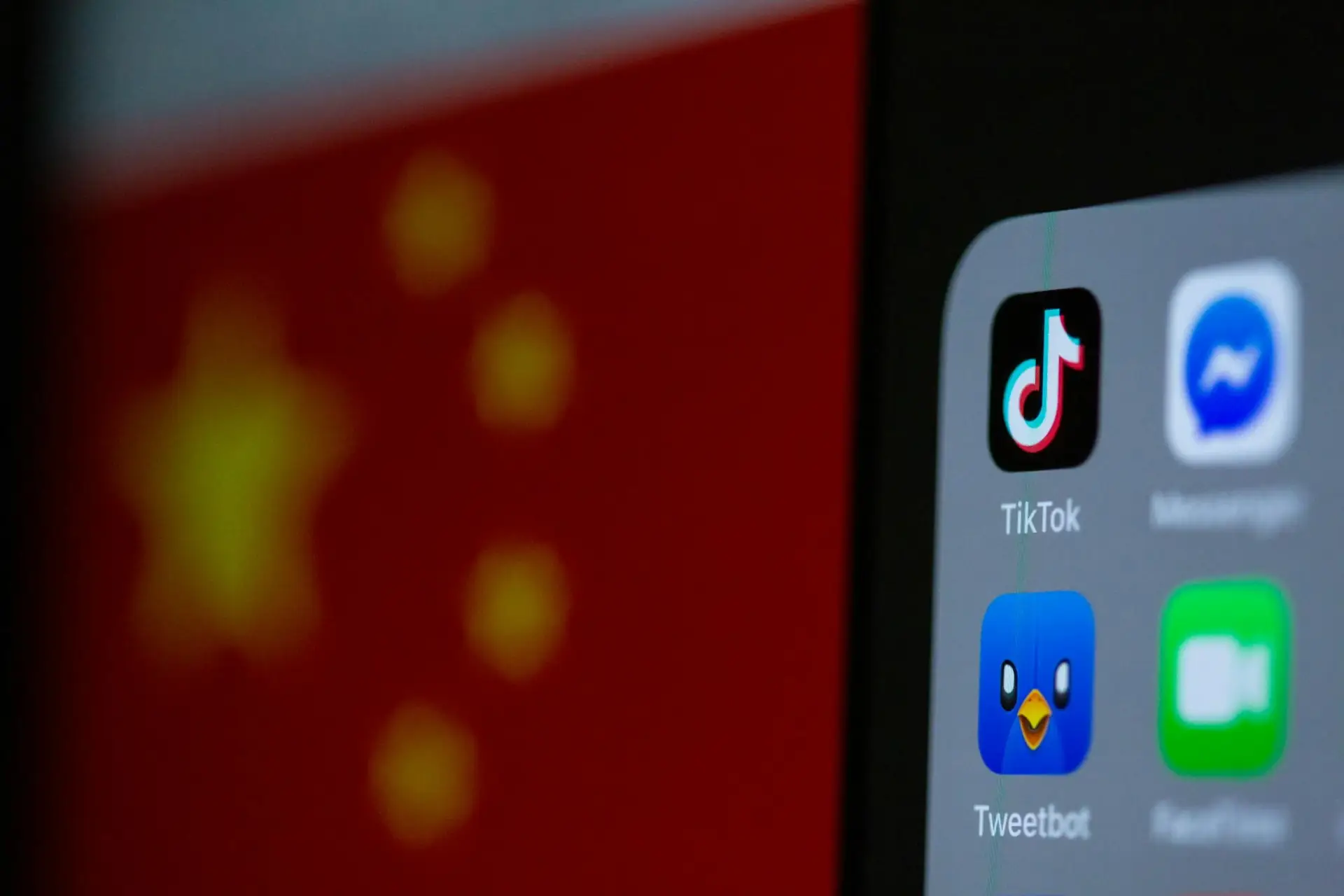The Chinese-owned video app TikTok has faced intense scrutiny in the United States, with concerns ranging from data privacy to national security. As the U.S. government pushes for a ban or forced sale of the app, another foreign-owned entity, The Campaign Registry (TCR), has begun to attract attention. TCR, a database for tracking digital political ads, has some similarities to TikTok in terms of foreign ownership and data access concerns. However, the lack of public information about TCR makes it difficult to predict if it will face the same level of scrutiny as TikTok.
TikTok’s Challenges

TikTok, owned by the Chinese company ByteDance, has faced growing concerns in the U.S. over its data privacy practices and potential ties to the Chinese government. Critics argue that the app could be used to collect sensitive information about American users, which could then be accessed by Chinese authorities. There have also been allegations of content censorship and moderation bias, with some claiming that TikTok suppresses content that is critical of the Chinese government or its policies.
In response to these concerns, the U.S. government has taken several actions against TikTok. In 2020, then-President Donald Trump issued an executive order that would have effectively banned the app unless it was sold to a U.S. company. While that order was blocked by the courts, the Biden administration has continued to express concerns about TikTok’s security risks. In March 2023, the U.S. House Foreign Affairs Committee voted to advance a bill that could give the President the power to ban TikTok and other apps that pose national security risks.
TikTok has attempted to address these concerns by implementing several measures to protect user data and maintain transparency. The company has stated that it stores U.S. user data in the United States and Singapore, with backup servers in the U.S. and Singapore as well. TikTok has also proposed the creation of a new U.S.-based subsidiary, with oversight from the U.S. government, to handle American user data. However, these efforts have not fully assuaged the concerns of U.S. officials and lawmakers, who continue to push for more stringent measures against the app.
The Campaign Registry: What We Know

The Campaign Registry (TCR) is a database that tracks digital political ads in the United States. It was created in response to concerns about foreign interference in U.S. elections, particularly through online advertising. Political campaigns and advertisers must provide detailed information about their digital ad spending to TCR, including the content of the ads, the targeted audience, and the amount spent.
Foreign Ties
One of the main concerns about TCR is its foreign ownership structure. Although the exact details are not widely known, it has been reported that TCR is owned by a parent company based outside of the United States. This raises questions about who has access to the sensitive data collected by TCR and whether that information could be used by foreign entities to influence U.S. elections.
International Ties Through MEF
Another point of concern is TCR’s involvement with the Mobile Ecosystem Forum (MEF), a global trade association for the mobile industry. MEF has been described by some as a “shadowy group of telecom globalists,” and critics argue that its international membership could facilitate the sharing of sensitive data across borders.
Political Influence
There have also been allegations of political bias and potential influence on U.S. elections by TCR. Some have suggested that the registry could be used to selectively approve or reject certain campaign messages, favoring candidates or causes that align with the interests of its foreign owners. However, without more information about TCR’s ownership structure and data handling practices, it is difficult to substantiate these claims.
Comparing TikTok and The Campaign Registry

While TikTok and The Campaign Registry serve very different purposes, they share some similarities that have raised concerns among U.S. officials and the public. Both companies have foreign ownership structures that could potentially allow sensitive American data to be accessed by entities outside of the United States. In TikTok’s case, the concern is that the Chinese government could use the app to collect data on American users or influence public opinion through content moderation. With TCR, the worry is that foreign actors could use the registry’s data to gain insights into U.S. political campaigns and potentially interfere with elections.
However, there are also significant differences between the two platforms. TikTok is a social media app with a vast, mostly young user base, while TCR is a specialized database used primarily by political campaigns and advertisers. The nature of the data collected by each platform also differs: TikTok has access to a wide range of user information, including personal details, location data, and content preferences, while TCR focuses specifically on data related to political advertising.
Another key difference is the level of public awareness and scrutiny each platform has received. TikTok has been the subject of intense media coverage and political debate, with concerns about its data practices and ties to China widely discussed in the news and on Capitol Hill. In contrast, TCR has received relatively little public attention, with many Americans likely unaware of its existence or the potential issues surrounding its foreign ownership.
The potential national security implications of each platform also vary. While TikTok has faced accusations of censorship and data sharing with the Chinese government, the app is primarily used for entertainment purposes and does not have direct access to sensitive government or military information. TCR, on the other hand, holds data that could potentially be used to target political campaigns or influence election outcomes, which could have more direct national security consequences.
Factors That Could Influence Scrutiny of The Campaign Registry
Several factors could lead to increased scrutiny of The Campaign Registry in the coming months and years. One of the most significant would be a growth in public awareness and media coverage of the platform and its potential risks. As more people become aware of TCR’s foreign ownership and the sensitive data it collects, there may be greater pressure on politicians and regulators to take action.
Evidence of data misuse or foreign influence could also trigger increased scrutiny of TCR. If there were concrete examples of the registry’s data being accessed or manipulated by foreign entities, it would likely lead to a swift response from U.S. authorities. This could include investigations by Congress or federal agencies, as well as calls for TCR to be banned or forced to sell to an American company.
Pressure from U.S. politicians and regulators is another factor that could shape the future of TCR. If lawmakers or government officials begin to view TCR as a threat to national security or election integrity, they may push for measures similar to those proposed for TikTok, such as a ban or forced divestment. This could be especially likely if there is a perception that TCR is not being transparent about its ownership structure or data handling practices.
Finally, the response from TCR and its stakeholders could play a significant role in determining the level of scrutiny the platform faces. If TCR is proactive in addressing concerns about foreign ownership and data access, it may be able to head off some of the criticism and regulatory pressure. This could involve steps such as increasing transparency around its ownership structure, implementing strict data protection measures, or even voluntarily divesting from foreign owners. However, if TCR is seen as uncooperative or unresponsive to these concerns, it could fuel further calls for action against the platform.
Challenges in Assessing The Campaign Registry

One of the main challenges in assessing the potential risks posed by The Campaign Registry is the limited amount of public information available about the platform’s operations and ownership structure. Without a clear understanding of who owns TCR and how it handles the sensitive data it collects, it is difficult to determine the extent to which foreign entities may be able to access or influence this information.
The lack of transparency around TCR’s data handling and sharing practices is another significant hurdle. Even if TCR were to provide more information about its ownership, there would still be questions about how it stores and protects the data it collects, and whether any foreign entities have access to this information. Without clear and verifiable answers to these questions, it may be difficult for regulators and the public to fully trust TCR’s operations.
Finally, proving or disproving allegations of bias or foreign influence in TCR’s platform would likely be a complex and challenging process. Demonstrating that the registry is selectively approving or rejecting certain campaign messages, or that its data is being used to influence U.S. elections, would require a deep investigation into the platform’s inner workings and decision-making processes. Even with such an investigation, there may not be clear-cut evidence of wrongdoing, making it difficult to justify regulatory action against TCR.
Conclusion
As the debate over TikTok’s future in the United States continues, it is important to consider whether other foreign-owned tech platforms, such as The Campaign Registry, could face similar scrutiny. While TCR and TikTok serve different purposes, they share some key similarities, including foreign ownership structures and the potential for sensitive American data to be accessed by entities outside of the U.S.
However, the lack of public information about TCR’s operations and ownership makes it difficult to assess the level of risk the platform may pose. Without greater transparency from TCR, it will be challenging for regulators and the public to determine whether the platform should face the same kind of regulatory action as TikTok.
Ultimately, the future of TCR and other foreign-owned tech platforms will likely depend on many factors, including public awareness, evidence of data misuse or foreign influence, and pressure from U.S. politicians and regulators. As these factors evolve, monitoring developments closely and pushing for greater transparency and accountability from all tech platforms that hold sensitive American data is important.
Regardless of the specific outcome for TCR or TikTok, the broader issue of foreign ownership and influence in the tech industry is likely to remain a key concern for the United States in the years to come. As policymakers and the public grapple with these challenges, it will be crucial to find a balance between protecting national security and preserving the benefits of global innovation and collaboration in the tech sector.
Upgrade your communication system with Carolina Digital Phone’s all-in-one solution, ensuring seamless connectivity and advanced features for your business needs.
Further Reading
For those interested in deepening their understanding of digital privacy and foreign ownership, the following resources provide valuable insights:
- Americans and Privacy: Concerned, Confused and Feeling Lack of Control Over Their Personal Information – This report by Pew Research Center explores the complex feelings Americans have about their digital privacy, discussing both the perceived risks and the measures that could improve their confidence in data handling practices.
- Banning TikTok Would Do Basically Nothing to Protect Your Data – Scientific American provides a critical perspective on the effectiveness of banning apps like TikTok in protecting personal data, suggesting that broader measures are necessary to address privacy concerns in the digital age.
- Questions and Answers on the Digital Services Act – The European Commission offers insights into the Digital Services Act, which addresses digital privacy, targeted advertising, and more, highlighting efforts in Europe to manage online platforms and user data.






